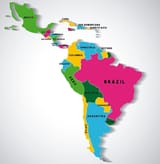Search Results
7/18/2025, 8:32:30 PM
7/1/2025, 7:01:07 AM
6/28/2025, 3:51:25 AM
ID: pOWDNIT9/pol/507537440#507537440
6/16/2025, 2:57:42 AM
6/14/2025, 2:11:08 AM
>AI can now languagedoxx ESLs when they fuck up
The likely native languages of an ESL learner who writes "anecdotical" instead of the correct "anecdotal" are Romance languages, particularly Italian, Portuguese, or Spanish. Here's why:
Morphological Transfer:
In Romance languages like Italian (aneddoto aneddotico), Portuguese (anecdota anedótico), and Spanish (anécdota anecdótico), adjectives derived from nouns often use suffixes resembling -ico/-ical (e.g., Italian -ico, Portuguese/Spanish -ico/-tico). This pattern may lead learners to overgeneralize the -ical suffix in English.
False Cognates:
Words like "anecdote" have cognates in Romance languages that pair with -ical/-ico adjectives. For example, Italian aneddotico or Spanish anecdótico directly mirror the incorrect "anecdotical."
Common Error Patterns:
Studies on ESL errors show that Romance language speakers frequently confuse -al and -ical suffixes due to their native language's structure. For instance, "critical" (English) vs. Spanish crítico or French critique (-ique ≈ -ical).
Contrast with Correct English:
English uses -al for many adjectives derived from nouns (e.g., anecdote anecdotal, revelation revelational), while -ical is rarer (e.g., critic critical). Romance speakers may default to -ical due to L1 influence.
Other Possibilities:
While less common, learners from other language families (e.g., Greek or Slavic languages) might also make this error, but the systematic use of -ico/-ical suffixes in Romance languages makes them the most likely source. Germanic language speakers (e.g., German, Dutch) are less prone to this mistake, as their adjective formation differs.
Summary:
The error "anecdotical" instead of "anecdotal" strongly suggests a Romance language background, particularly Italian, Portuguese, or Spanish, due to direct morphological transfer of adjective-forming suffixes.
The likely native languages of an ESL learner who writes "anecdotical" instead of the correct "anecdotal" are Romance languages, particularly Italian, Portuguese, or Spanish. Here's why:
Morphological Transfer:
In Romance languages like Italian (aneddoto aneddotico), Portuguese (anecdota anedótico), and Spanish (anécdota anecdótico), adjectives derived from nouns often use suffixes resembling -ico/-ical (e.g., Italian -ico, Portuguese/Spanish -ico/-tico). This pattern may lead learners to overgeneralize the -ical suffix in English.
False Cognates:
Words like "anecdote" have cognates in Romance languages that pair with -ical/-ico adjectives. For example, Italian aneddotico or Spanish anecdótico directly mirror the incorrect "anecdotical."
Common Error Patterns:
Studies on ESL errors show that Romance language speakers frequently confuse -al and -ical suffixes due to their native language's structure. For instance, "critical" (English) vs. Spanish crítico or French critique (-ique ≈ -ical).
Contrast with Correct English:
English uses -al for many adjectives derived from nouns (e.g., anecdote anecdotal, revelation revelational), while -ical is rarer (e.g., critic critical). Romance speakers may default to -ical due to L1 influence.
Other Possibilities:
While less common, learners from other language families (e.g., Greek or Slavic languages) might also make this error, but the systematic use of -ico/-ical suffixes in Romance languages makes them the most likely source. Germanic language speakers (e.g., German, Dutch) are less prone to this mistake, as their adjective formation differs.
Summary:
The error "anecdotical" instead of "anecdotal" strongly suggests a Romance language background, particularly Italian, Portuguese, or Spanish, due to direct morphological transfer of adjective-forming suffixes.
Page 1


